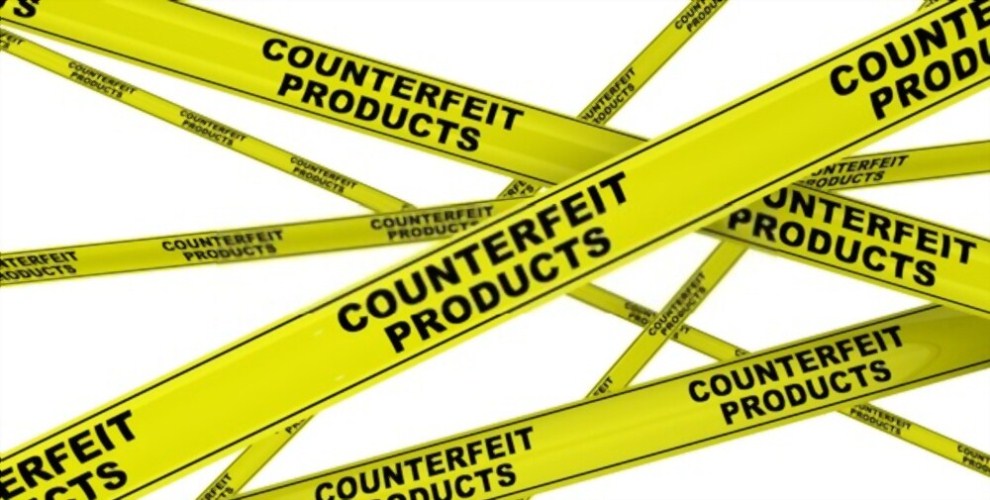The festive season brings a deluge of sales, not just on online shopping websites but also on traditional brick-and-mortar portals. Promotions like Black Friday, Christmas Bonanza, Freedom Sale, etc., lure people into buying online and offline products. But there’s only one big issue while buying online: the risk of getting fake or counterfeit products.
Fake products are not only harmful to the companies they imitate but also to consumers. Many counterfeits sold on the Uganda market are of low quality, and some can cause injuries. For example, cosmetics or skincare product counterfeits can harm users’ health. Moreover, you will not get any warranty or guarantee on such items.
Also read; Online Shopping Safety: 15 Ways Jumia is Protecting Customers
Every shopping site in Uganda claims to sell original products, but how can we be sure of their claims? I have seen complaints of fake products on e-commerce giants like Jumia Uganda, that have an Anti-Counterfeit Policy and zero tolerance on replicas, fakes, copies and counterfeits.
Today I bring you some tips to avoid buying fake products online in Uganda. But before we get to that, let’s first know the products counterfeited most in Uganda.
Also read; 9 Mistakes to avoid while shopping online in Uganda.
Most Commonly Counterfeited Products in Uganda
Africa remains the most counterfeited continent, and with Uganda being one of the most populous countries in Africa, it is a little wonder that the country is facing a big problem of an epidemic of fake products, most of which are imported from China while others are manufactured locally.
From well-known places of commerce like the Kikuubo market to online eCommerce platforms like Jumia Uganda, buyers are overwhelmed with a huge number of fake products, most of which are sadly advertised or disguised as genuine.
Having prior knowledge of the most commonly counterfeited products in the Ugandan market will benefit anyone who buys things online regularly.
Below are the top counterfeited products in Uganda;
- Cosmetics
- Mobile phones
- Packaged Foods
- Pharmaceuticals
- Footwear
- Clothing
- Leather Goods
- Automotive Parts
- Alcohol
- Beverages
- Jewelry
Also read; Top 12 Online Scams in Uganda and How to Avoid Them
Tips to avoid buying counterfeit products online in Uganda
Don’t be sold fakes and replicas. Be vigilant. Below are the steps to take to avoid buying counterfeit products online in Uganda:
1. Check the prevailing price of the product
In most cases, fake products are always cheaper than the original ones. The truth is Ugandans love cheap things; that’s why manufacturers always make substandard goods to meet buyers’ budgets. Manufacturers and resellers have taken advantage of this making millions for themselves.
Before you buy any product, check its price around several online stores and see whether it is the prevailing price for that particular product.
If the price is too low compared to other shopping sites, you will likely buy a fake product. I’m not saying every low-priced product is fake, but if the price is too good to be true, beyond explanation, then the product will likely be of low quality, expired, faulty or counterfeit.
Also read; How to spot an online shopping scam in Uganda.
2. Check the identity of the seller.
Always thoroughly research the seller when buying from online shopping websites (marketplaces) such as Jumia. Check their ratings and reviews. Have they got so much negative feedback? If so, what are the reviewers talking about? Also, has the seller responded to feedback or questions asked?
Not just the seller, but also check reviews for the particular product you are trying to buy. Read product reviews to see if they reveal something about the quality of the product. Excessively positive reviews may not mean the product is good. They could be fake reviews. Jumia Uganda has also been accused of only approving positive and neutral reviews and deleting negative ones.
3. Be wary of heavy discounts.
Nothing in this world comes for free. You may be tempted to buy that much-desired branded item selling at a rock-bottom price, but do so with much caution. Before you commit to buying, compare prices on several online shopping websites, and always consider the total price, including delivery fees, taxes etc. Also, check the manufacturer’s official website to confirm the price and other information to ascertain the product’s authenticity.
4. Check the product packaging.
The packaging of the product can also scream counterfeit. If the
packaging has no manufacturer’s details, expiry dates, or some misspellings and poor grammar, it could be a fake or counterfeit product. Check the manufacturer’s website to compare the logo and placement of the details on the packaging.
5. Check for return, refund and exchange policies.
When the return, refund and exchange policies are clearly stated, you can limit the risk involved in purchasing the product. The availability of well-defined return, refund and exchange policies indicates that you will get the exact product being displayed. If you are unhappy, you can return the product and get your money or get an exchange for a different product.
Also read; Returning an Item: A Step-by-Step Guide for Online and In-Store Purchases
6. Choose to pay cash on delivery.
As the saying goes, “seeing is believing”. It is therefore very important to only pay when your product has been delivered. Most eCommerce sites in Uganda accept Cash On Delivery (COD). While checking out, select COD as your payment method. This will enable you to cross-examine the product you ordered and determine whether it is genuine before paying. If it is fake or a replica yet it was advertised as original, don’t pay.
Also read; Tricks Jiji Conmen use and how to avoid getting conned.
What if you end up with a fake product?
You followed all the above tips, did your due diligence, but still ended up with a fake/counterfeit product. Don’t worry. You can still get justice by doing the following:
- Inform the seller about your issue and request a return and refund
- Write to the marketplace where you made a purchase and report the issue. If the marketplace gets many complaints about a particular seller, they will blocklist them from their platform.
- Inform regulatory authorities such as the Uganda National Bureau of Standards (UNBS).
- If the reseller refuses to refund your money and the marketplace owner ignores you, report them, get them arrested and prosecuted in courts of law. Selling counterfeits is against Ugandan law, and every citizen has consumer rights that entitle them to high-quality products.
- Lastly, share your experience on social media platforms and also on the
- Company’s website so that more and more people become aware of such cases.
Also read;
In conclusion
There’s a growing risk that the brand you buy online in Uganda is fake. I hope the above information will help you protect yourself and avoid buying fake products online in Uganda. Still, the best protection is to stay vigilant while shopping online in Uganda.




